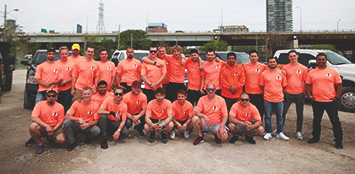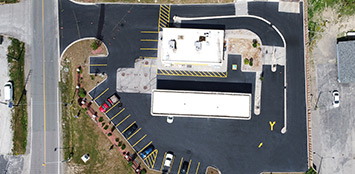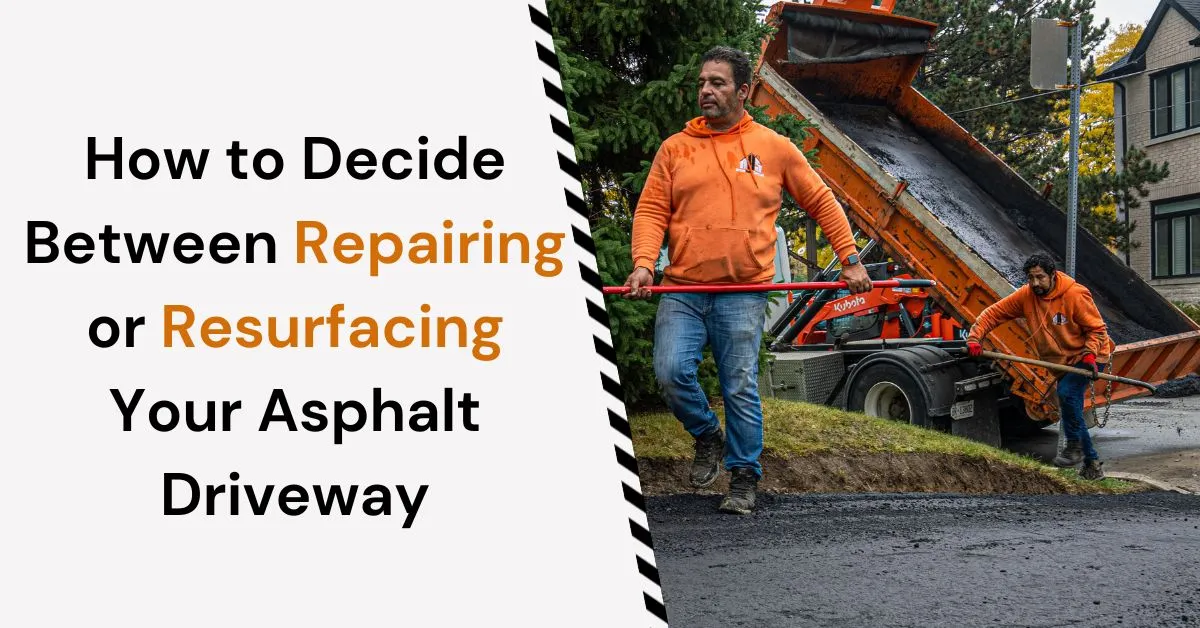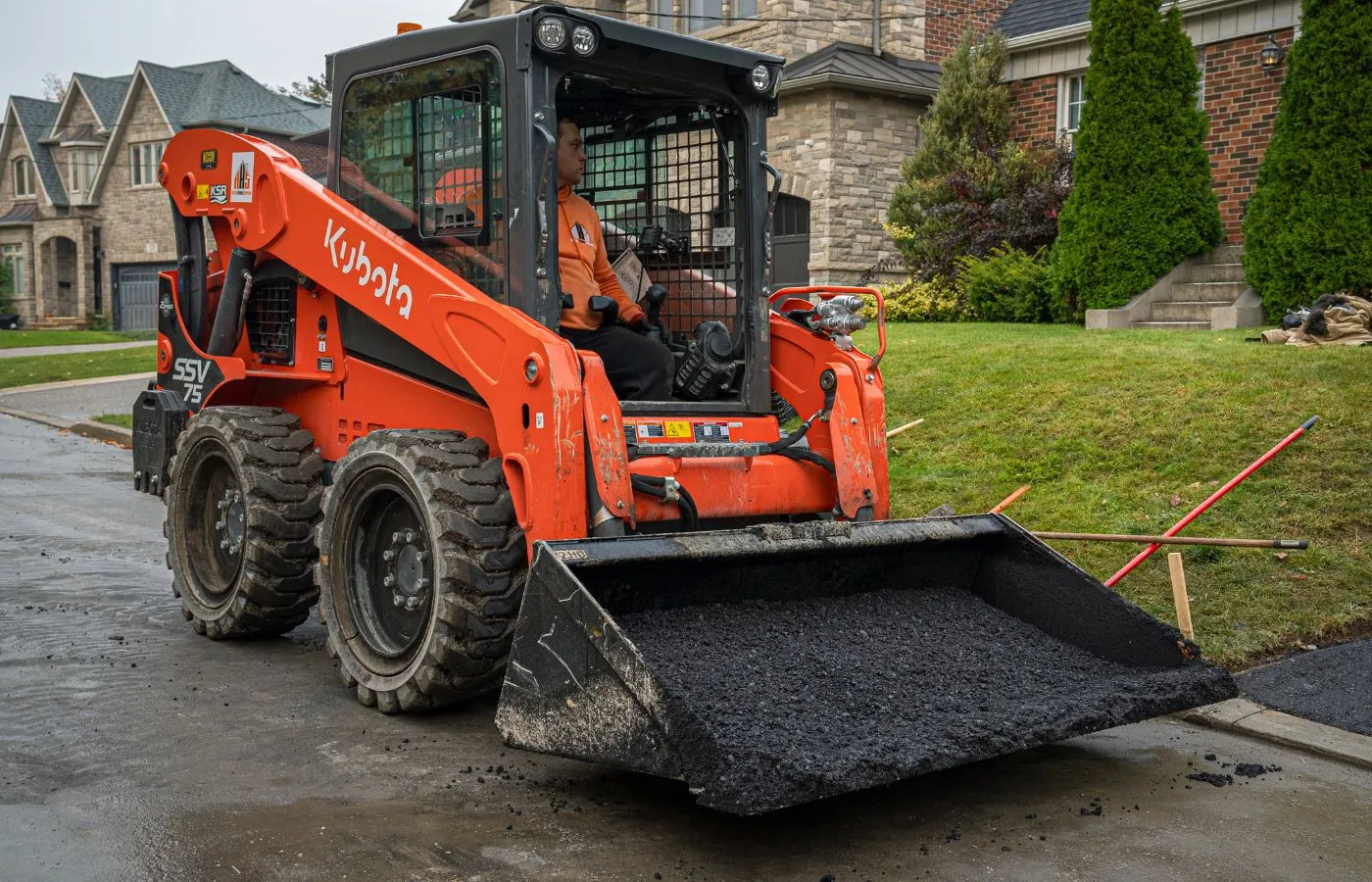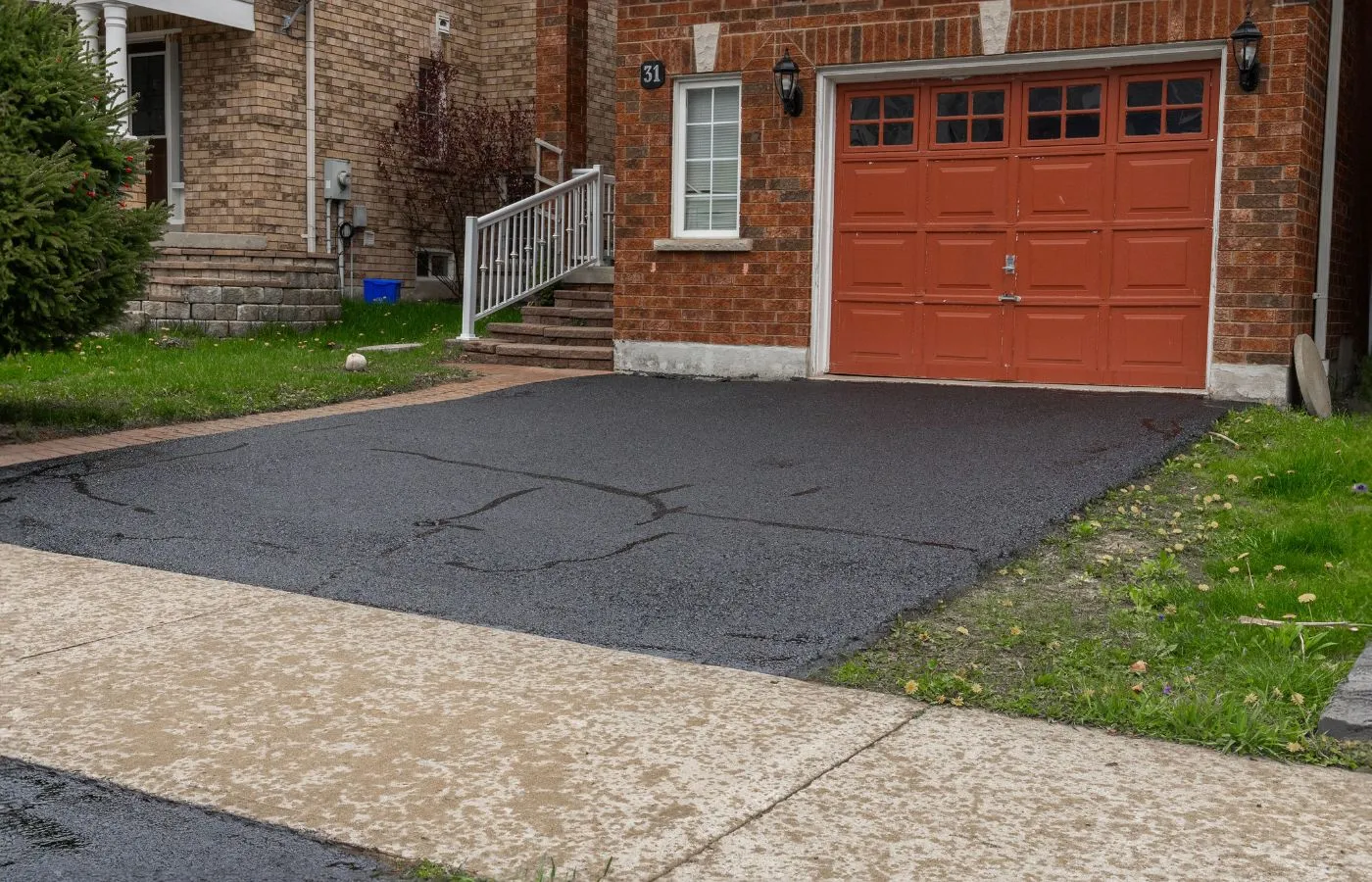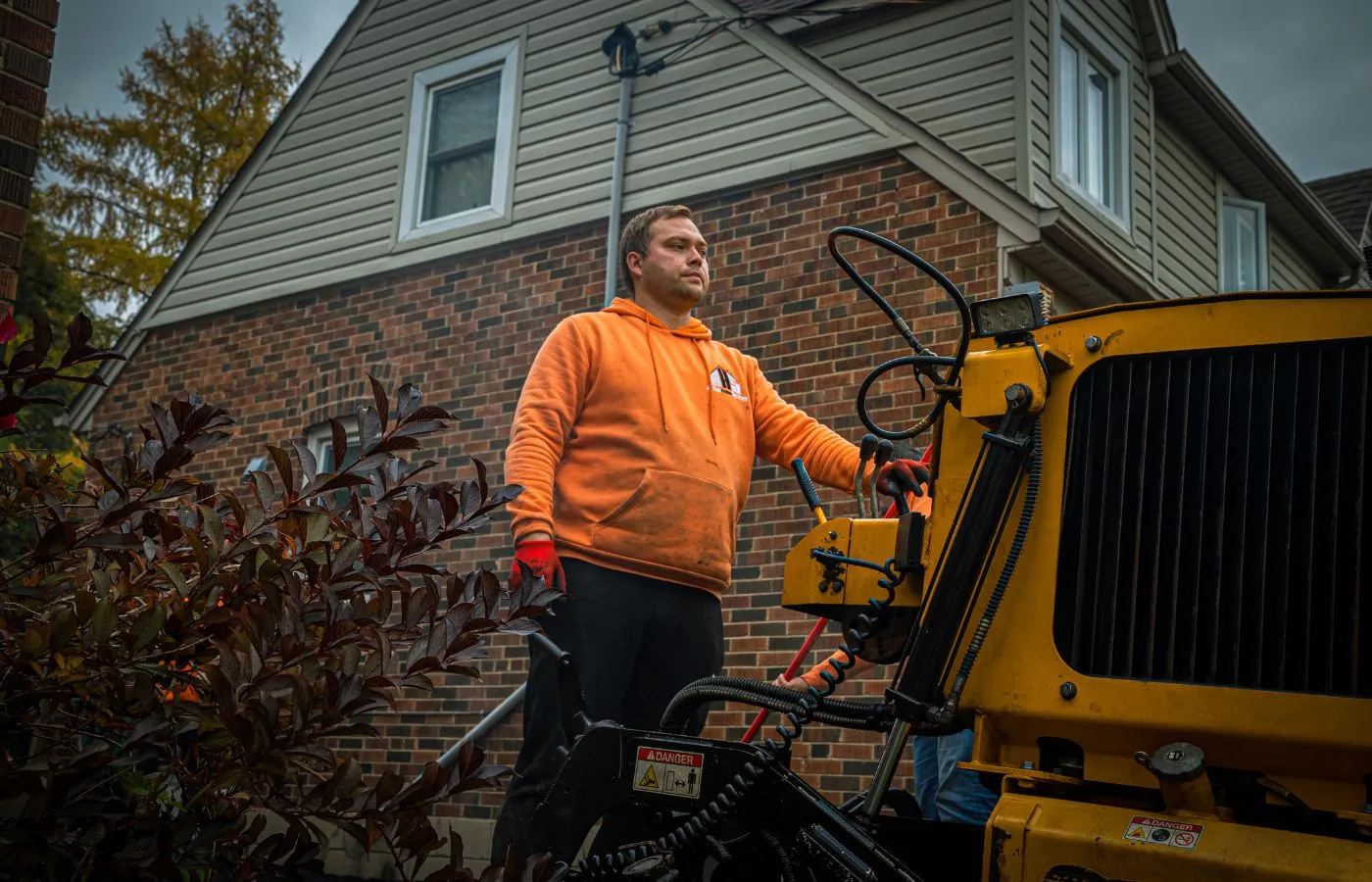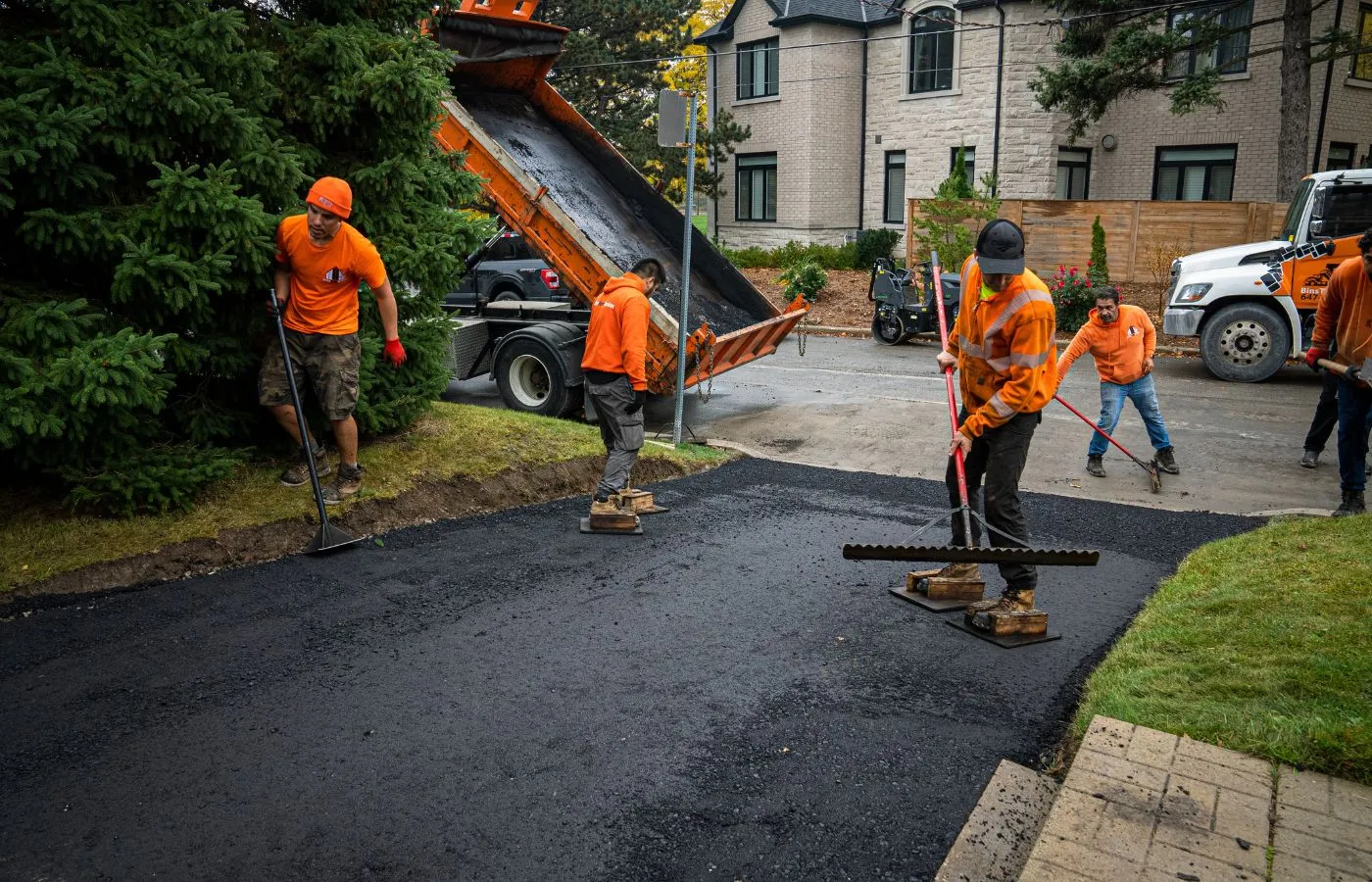Of the many aspects involved in home ownership, caring for an asphalt driveway is near the top of the list, especially when you live in areas like the GTA where harsh winters, repeated freeze-thaw cycles, and high volume will, over time, break pavement down. As your driveway ages and shows its wear, you may question whether you should be repairing driveway or resurfacing your driveway. At Asphalt Sealing, we have extensive experience with both methods and will guide you through the process so that you make the best choice for your driveway.
Understanding the Difference: Repairing vs. Resurfacing Asphalt
Asphalt Repair: Quick Fixes for Minor Issues
Repairing driveway includes the fixing local damages, such as cracks or potholes, without touching the whole surface of the driveway. This is a cheaper way to repair your driveway and extend its life when destruction is minor.
Crack Repair: Filling cracks with a sealant to prevent moisture from penetrating the asphalt. It’s essential for avoiding more severe damage over time.
Pothole Patching: Filling of potholes with hot or cold mix asphalt depending on the season and the extent of the damage.
Surface Sealing: This is adding a layer to protect from water, oil, and UV damage. Seal coating will also make the asphalt look fresh and dark and it acts like a barrier for it.
Repairs are best suited for newer driveways that only have minor cracks and potholes. Periodic maintenance with sealing a coat every few years lengthens the life of the asphalt surface by keeping it operational. However, repairing the driveway may be temporary if there are more serious underlying issues.
Asphalt Resurfacing: A New Layer for Widespread Wear
Resurfacing is the process of laying a new layer of asphalt and rejuvenating your driveway for up to an extra 15 years. Resurfacing can be recommended in areas where the asphalt surfaces have suffered severe damage to the surface, yet the support found within the foundation or base layer is intact.
Overlay: A new layer of asphalt average thickness of 1.5 to 2 inches is applied over the existing surface. The process overlays cracks, small depressions, and other unevenness. It will restore the smoothness, and visual appearance of the driveway, and enhance durability.
Resurfacing, on the other hand, is a more comprehensive solution than mere repairs but less expensive compared to a complete replacement. This works best if the surface has moderate wear but with no major foundational issues like problems in drainage or subgrade instability.
Key Factors to Consider
1. Damages to the Asphalt Pavement
The type and extent of the damages that have occurred on your asphalt driveway will go a long way in determining whether repairs or resurfacing would be apt. For instance,
- Small Cracks or Potholes: If the damage extends to a small area, it would be pretty enough to repair it. In such cases, crack filling and pothole patching effectively work to maintain the integrity of your driveway.
- Surface Damage Caused due to Wide Spreading: If your driveway is full of cracks, alligator cracking, or if wide surface wear and tear have happened, then resurfacing might work best for you since it will fix up the damage in its entirety.
If more than 25-30% is in poor shape, then it makes sense to resurface rather than continue to repair it as the long-term cost may be more inexpensive this way.
2. Age of the Asphalt
Well-maintained asphalt driveways can serve well for 15 to 20 years. If your driveway has reached this age, or is near it, resurfacing could add more than a decade to its life. If the driveway is older and the structural problems are deep, then resurfacing will most likely only last for a short time. In that case, it may be better to replace it, to fix foundational issues.
3. Structural Integrity
The structure or the foundation of your driveway is one of the largest determinants in making your choice between repair and resurfacing. If it has a subgrade with poor drainage, or if the cracks are more than a quarter inch deep, or if there are oodles of potholes, then resurfacing will not fix the problem beneath. This means that through resurfacing, you will only be able to look at a temporary fix whereas, quite possibly, what you need is a completely new one.
- Stable Base: Resurfacing is suitable when the base layer is still solid and the damage is for the most part at the surface level.
- Unstable Base: If the base is compromised (such as poor drainage or subgrade settling), replace the driveway instead of resurfacing it.
4. Cost Considerations
Short-run repairs to your driveway will be cheap, and the cost will depend on how terrible the damage is. The treatments-crack sealing, pothole filling, and seal coating-are relatively inexpensive to maintain. Continuous repairs will be very costly over time for repairing the driveway.
While this is a bit more expensive upfront sometimes, it is a longer-term solution and saves money on various smaller repairs. Resurfacing is the middle ground between minor repairs and full replacement. Adding a new protective layer at lesser costs compared to replacement.
5. Curb Appeal and Functionality
Resurfacing doesn’t just give back the functionality of your driveway but also the appearance. This new layer can cover blemishes on the surface, giving your yard a clean and unified look. This is important in case you consider selling your house or changing the outlook of your property.
When Should You Replace Your Driveway?
While repair and resurfacing can rectify a lot of driveway issues, certain conditions need total replacement. These include:
- Deep and Extensive Cracking: The time this should catch your attention is when resurfacing could not work because the base layer underneath the crack has been severely damaged. Full replacement is the only method of ensuring that the newly laid driveway is durable and structurally strong.
- Subgrade Issues: In situations where the actual subgrade is compromised due to poor drainage or other instability in the soil itself, replacement of the driveway is necessary. It corrects issues before laying new asphalt down.
Replacement costs significantly more, depending on the size of the job and the project’s scale. The results will last the longest, adding 20 to 30 years to your driveway’s life.
What’s Best for Your Driveway?
Which needs to be done, repairing the driveway or resurfacing? It depends on the extent of the damage, the condition of the base, and your long-term goals. Minor issues are fixed quickly and at a low cost with repairs, while resurfacing gives you a brand-new surface. Where the base is compromised or in the last stages of life, replacement may be the best alternative.
For professional advice and a thorough assessment of your driveway, call Asphalt Sealing. Our team will guide you in selecting the right solution for your driveway. We stand for driveways that are functional, and sturdy, and continue to look their best for years to come. We proudly serve Toronto and the Greater Toronto Area with high-quality asphalt paving services, from repairs to complete resurfacing projects.

